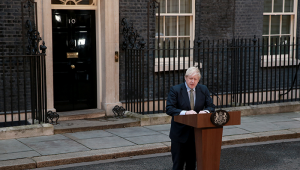In their first 100 days, the new leader must provide a one-year emergency settlement for local government, drop the council tax referendum requirement and come up with a strategy for health and social care funding.
These are the recommendations from the Local Government Information Unit think-tank, whose Local Finance Taskforce paper was published today. The report is based on evidence taken from 254 senior figures in local government.
Jonathan Carr-West, chief executive of LGiU, said: “The next prime minister will have 100 days to save local government when he is elected on 23 July.
“At the moment, councils have no idea how they will be funded this time next year. They face a financial cliff edge on 31 March 2020 and currently have no ability to budget or plan their services for the year ahead.
“Some may soon be forced to take very difficult decisions, based on their worst-case scenario budget estimates – making redundancies, stripping down services, selling valued public assets – that may turn out to be completely unnecessary.”
LGiU noted, from its previous research, that one in 20 councils fear it will be unable to fulfil statutory duties this year, while one in 10 expects to face legal challenges due to service cuts.
The think-tank called on the next prime minister to set out a plan for local government finance that considers overall quantum, uncertainty and risk, adult social care, business rates, council tax and other sources of funding.
On business rates, LGiU noted that despite a commitment to moving to 75% business rates retention by 2020, there is still little detail on how this will be redistributed, and called for a strategy to published “as a matter of urgency”.
The council tax referendum threshold – whereby councils must hold a local referendum on decisions to increase council tax beyond 3% – is “outdated and ripe for removal” the report said.
“Local government deserves better and local government deserves more,” Carr-West concluded.











